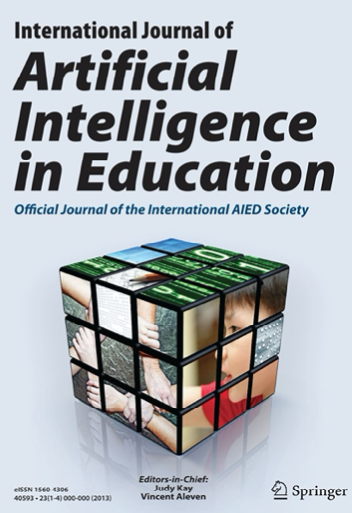Ethics of AI in Education: Towards a Community-Wide Framework
 With the growing activity in both academia and mainstream journalism on Fairness, Accountability, Transparency, and Ethics (FATE) as they pertain to machine reasoning in society, it’s a good signal that a Special Issue of the International Journal of Artificial Intelligence in Education is coming out shortly, entitled: The FATE of AI in Education: Fairness, Accountability, Transparency, and Ethics.
With the growing activity in both academia and mainstream journalism on Fairness, Accountability, Transparency, and Ethics (FATE) as they pertain to machine reasoning in society, it’s a good signal that a Special Issue of the International Journal of Artificial Intelligence in Education is coming out shortly, entitled: The FATE of AI in Education: Fairness, Accountability, Transparency, and Ethics.
While one would not expect education — as one of society’s most important public functions — to be exempt from wider AI-FATE concerns in society, we need to understand in detail how the problems and solutions play out specifically with particular stakeholders, organisations, laws, policies/politics, practices and platforms in education.
Moreover, is there nothing distinctive about teaching and learning, that sets it apart from (say) health, policing and shopping as a phenomenon? One would hope so (and here’s a tutorial exploring this in more depth).
I’ll update this blog when the issue is officially published, but meantime, here’re the results of interviewing the community about the challenges…
Holmes, W., Porayska-Pomsta, K., Holstein, K., Sutherland, E., Baker, T., Buckingham Shum, S., Santos, O. C., Rodrigo, M. T., Cukurova, M., Bittencourt, I. I. and Koedinger, K. R. (2021), Ethics of AI in Education: Towards a Community-Wide Framework. International Journal of Artificial Intelligence in Education (Published online 2021/04/09) https://doi.org/10.1007/s40593-021-00239-1 (Open Access)
Abstract: While Artificial Intelligence in Education (AIED) research has at its core the desire to support student learning, experience from other AI domains suggest that such ethical intentions are not by themselves sufficient. There is also the need to consider explicitly issues such as fairness, accountability, transparency, bias, autonomy, agency, and inclusion. At a more general level, there is also a need to differentiate between doing ethical things and doing things ethically, to understand and to make pedagogical choices that are ethical, and to account for the ever-present possibility of unintended consequences. However, addressing these and related questions is far from trivial. As a first step towards addressing this critical gap, we invited 60 of the AIED community’s leading researchers to respond to a survey of questions about ethics and the application of AI in educational contexts. In this paper, we first introduce issues around the ethics of AI in education. Next, we summarise the contributions of the 17 respondents, and discuss the complex issues that they raised. Specific outcomes include the recognition that most AIED researchers are not trained to tackle the emerging ethical questions. A well-designed framework for engaging with ethics of AIED that combined a multidisciplinary approach and a set of robust guidelines seems vital in this context.
Leave a Reply